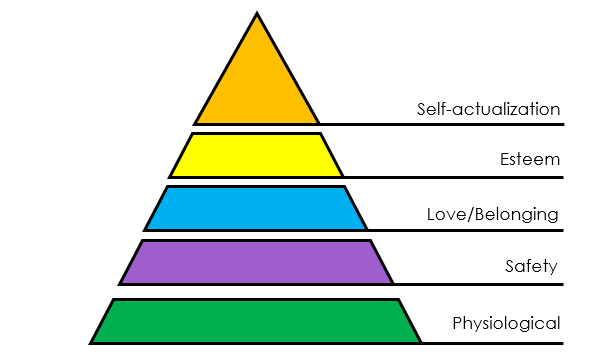Early childhood educators do not set out to intentionally harm children. Unfortunately, when we do not have an awareness and respect of the needs and wants of our children, we can (unintentionally) negatively impact a child’s positive identity and development.
The first step to providing an equitable early childhood program is to become aware of our potential biases so that we can show respect for ourselves, children, and families.
You may already be familiar with Maslow’s Hierarchy of Needs. The hierarchy of needs is a model based on five levels of human needs, represented as a triangle. The pyramid signifies that needs are from the bottom to the top, starting with basic needs going to the desire to be the best you can be. Each level builds upon itself and you cannot reach the top of the pyramid if you have not met the needs at the bottom.
Starting from the base of the triangle:
Physiological Needs – food, water, shelter
Safety – personal Safety, resources, health
Love and Belonging – friendship, family, sense of connection
Esteem – respect, self-esteem, recognition
Self-actualization – desire to become the most a person can be.
Providing equitable environments that support the diverse cultures and identities of the children served will help a child feel safe, loved, and that they belong. This will in turn support their self-esteem. Feeling emotionally safe also frees children to explore, play and learn.


